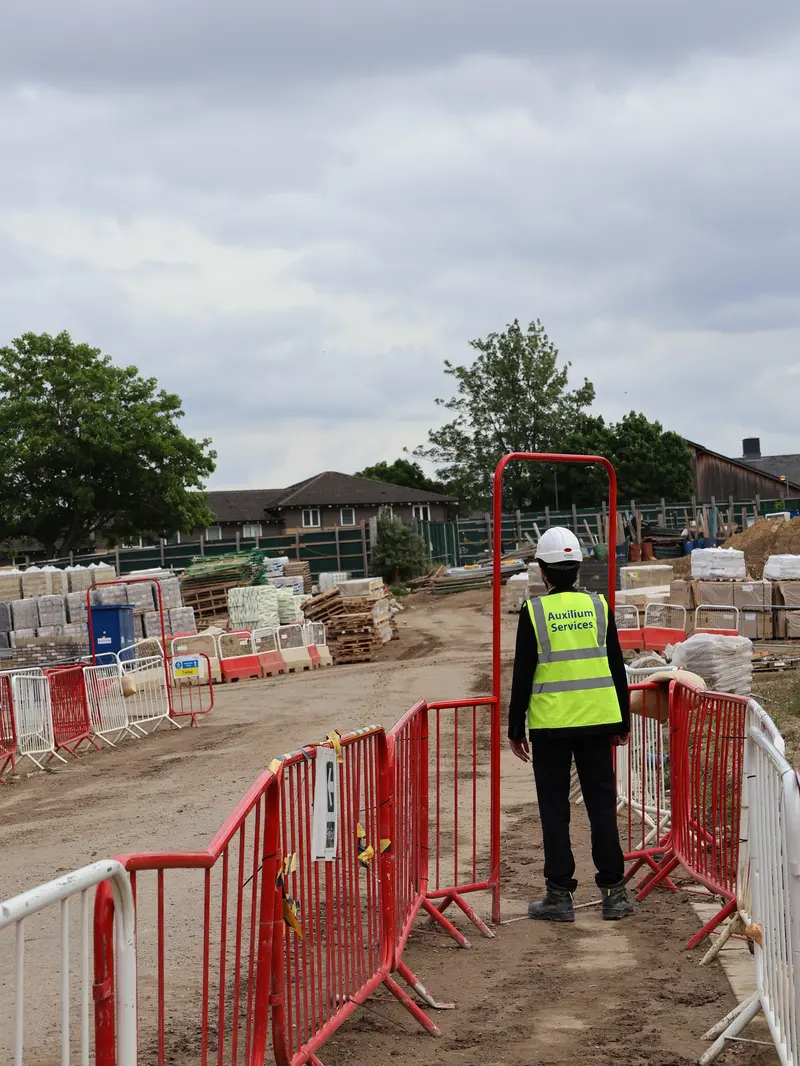- +44 330 133 0067
- info@auxl.co.uk

Security and guard services play a vital role in maintaining safety and order. They are the first line of
defence against potential threats.
The responsibilities of safety guards extend beyond mere presence. They involve proactive measures to
prevent incidents before they occur.
In today's world, the demand for skilled security personnel is higher than ever. This calls for a focus on
best practices and continuous improvement.
Security services companies must ensure their guards are well-trained and equipped. This includes
understanding risk assessment, communication, and technology use.
This guide will explore essential strategies for enhancing security measures. It aims to empower guards and
security services companies to excel in their roles.
Security and guard services are essential for protecting people and property.
They ensure a safe environment in various settings, from businesses to public events.
The duties of a security guard extend well beyond monitoring activities. Their mere presence can deter
crime and reassure the public. Guards act as the eyes and ears, remaining vigilant to identify threats.
Security guards often serve as the bridge between the public and law enforcement. Their ability to manage situations calmly and professionally is invaluable. As society evolves, the importance of these roles only increases.
Security guards require a diverse skill set to perform their duties effectively. These skills enable them to manage varied situations with ease and confidence.
Communication is paramount.
Guards must communicate clearly with people, whether they are giving instructions or taking reports. Good
communication builds trust and cooperation.
Security guards also require keen observation skills. Staying alert and noticing unusual behaviour can
prevent incidents before they escalate. A sharp eye is often their best tool.
Additionally, conflict resolution skills are crucial. Security guards frequently defuse tense situations without force. Being able to mediate disputes peacefully is a valued asset in their toolkit.
Ongoing training is vital for security guards to remain effective. It keeps them updated on the latest security
protocols and techniques.
Security services companies should emphasise continuous professional development. Regular training sessions
enable guards to hone their skills and learn new methods. This helps maintain a high standard of security
services.
Moreover, continuous learning fosters a culture of improvement and motivation among security personnel. By investing in development, security services companies enhance overall service quality and boost guard effectiveness.
Risk assessment is a critical component of effective security measures. By identifying potential threats, security guards can prevent incidents before they occur. This approach requires vigilance and analytical skills.
Security guards must be adept at evaluating various situations. They should prioritise common scenarios and unusual patterns. This proactive approach significantly enhances security measures.
Through these practices, guards can mitigate risks and deter potential threats. Proactive threat identification ensures a higher level of protection for everyone involved.
Effective communication is essential for security guards. They must convey information clearly and accurately
in all situations. Good communication can prevent misunderstandings and build trust.
Conflict resolution skills are equally important. Security guards often face disputes that require peaceful
resolution. Training in these areas can help guards manage confrontations calmly.
These skills not only enhance the guard’s effectiveness but also protect the safety of those involved. With proper communication and conflict management, security guards maintain peace more efficiently.
In today's world, technology plays a pivotal role in security services. Advanced tools aid security guards in
monitoring and controlling environments effectively. Embracing technology enhances both prevention and response
strategies.
Modern security relies heavily on systems like CCTV and access controls. These technologies allow for
real-time surveillance and quick assessment of situations. Guards must stay updated on the latest tech trends to
maximise their efficiency.
By integrating technology, security teams enhance situational awareness and decision-making. This proactive approach is key to safeguarding people and properties in a rapidly changing world.
Quick and effective responses are crucial during emergencies. Security guards must be ready to act promptly and
wisely in critical situations. Their decisions can significantly impact safety outcomes.
Comprehensive incident management plans are necessary for dealing with crises. Regular training ensures
security personnel are prepared for various scenarios. Having a clear understanding of roles helps streamline
emergency operations.
Well-prepared security teams reduce risks and improve outcomes during incidents. By continuously updating and practising plans, security services strengthen their ability to protect and serve effectively.
Trust is fundamental in security services. Security guards must consistently demonstrate professionalism to
earn community confidence. This involves maintaining a respectful demeanour and adhering to high ethical
standards.
Engaging with the community fosters stronger relationships and enhances security efforts. Establishing open
lines of communication can lead to better security outcomes.
By prioritising these elements, security services companies strengthen their role as trusted protectors within the community. This trust translates to improved safety and a positive reputation for the organisation.
Security services companies play a crucial role in safeguarding assets and people. Implementing effective strategies is vital for their success. Fostering a culture of continuous improvement and innovation keeps them competitive.
Adhering to these practices not only enhances security effectiveness but also elevates the overall trust and reliability of the organisation. Prioritising these aspects ensures a proactive approach to client needs and evolving security challenges.
In the realm of security and guard services, maintaining high standards is essential. Adapting to new
challenges and technologies is not just beneficial but necessary.
Through ongoing education and a focus on professionalism, security services can become more efficient and
respected. By implementing the best practices discussed, security professionals can ensure better protection and
client satisfaction, ultimately leading to safer environments for all.